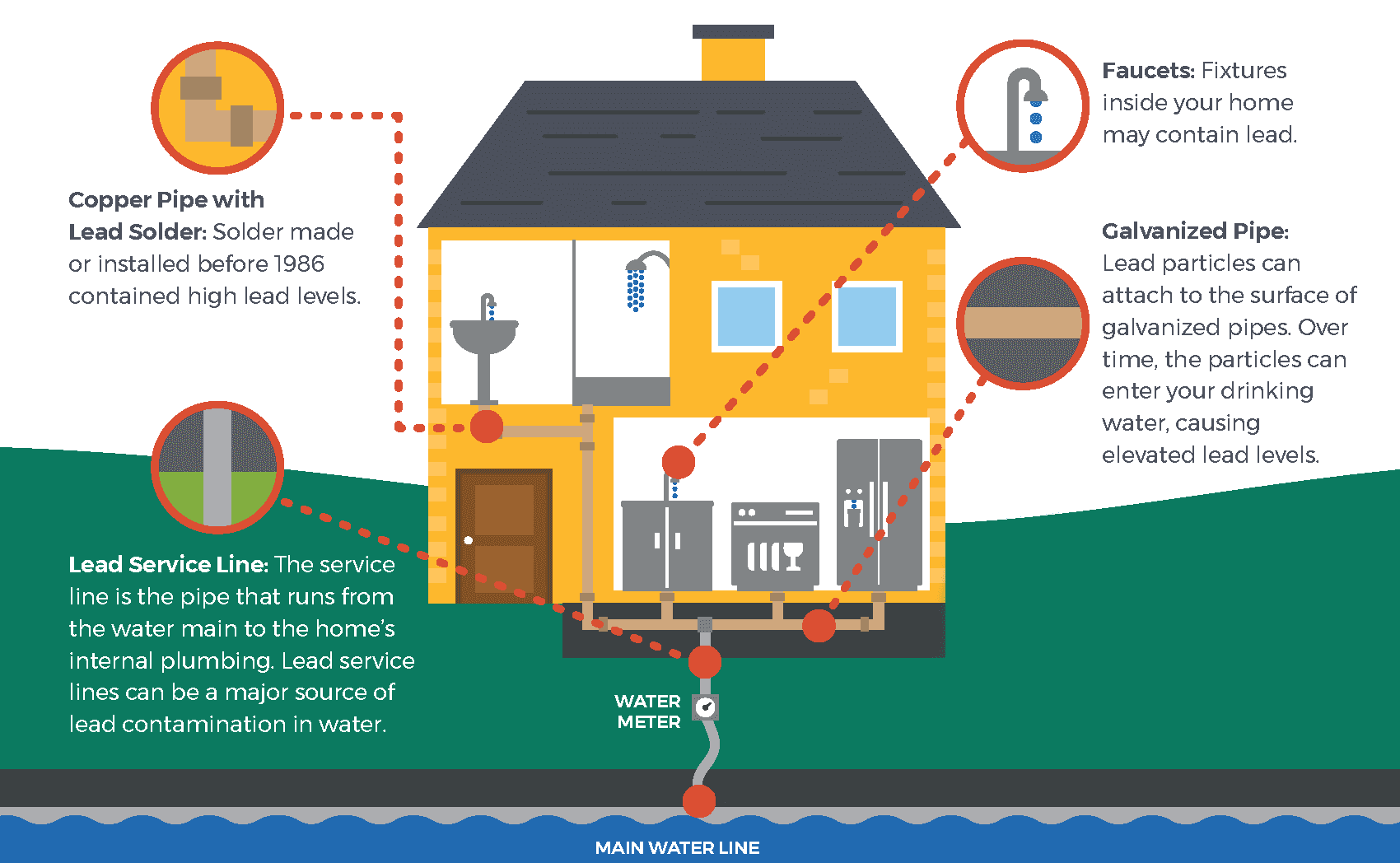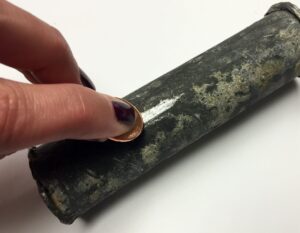Lead Awareness

Lead Awareness
When water leaves the Northern Kentucky Water District’s (NKWD) treatment plants, it does not contain lead. Lead in drinking water is primarily from materials and parts connected to home plumbing and service lines. A service line is the pipe connecting your house or building to the water main. If present, elevated levels of lead can cause serious health problems, especially for pregnant women and young children.
History of Lead Pipe for Service Lines:
Around the 1950’s, lead service line material transitioned to copper.
In 1988, the use of lead pipe and lead solder for joining copper piping and fittings was banned in Kentucky.
In 2014, the standard lead limits in brass faucets and fixtures were reduced from 8% to .25%.
The United States Environmental Protection Agency (EPA) published a regulation in 1991 to control lead in drinking water at customers’ taps. NKWD has been in continuous compliance with these lead standards.

NKWD is required to provide treatment that minimizes the corrosivity of the water. We do this by adjusting the pH and using a safe additive, a corrosion inhibitor, that protects the pipe material and helps lower the potential for lead to be released into the water. Although corrosion control can reduce risks, the best way to assure your house or building is safe from lead exposure through water is to remove the potential sources of lead. You can take responsibility for identifying and removing service materials that may contain lead, including the service line going into your house or building, as an additional precaution.
If you decide to replace your service line, notify us so that we can replace the portion under our control and test the water at your tap to ensure it is lead-free.
The EPA's regulations includes testing for lead in water samples collected from customers’ houses. The most recent round of lead testing completed in 2024 showed there were no sites above the lead action level* of 15 parts per billion. However, because every house is different, the amount of lead in your tap water may be lower or higher than the monitoring results for the selected sites.
*Action level is the concentration of a containment which, if exceeded, triggers treatment or other requirements which a water system must follow. For lead, 15 parts per billion is the action level.
More Information:
Information on lead in drinking water, testing methods, and steps you can take to minimize exposure is available on the EPA’s website.
If you have questions or comments for NKWD regarding lead in drinking water, please contact us at (859) 578-5451 or via email.
